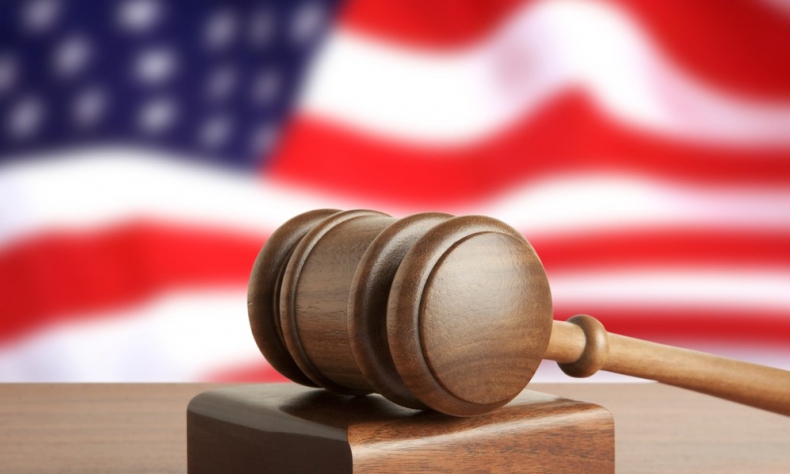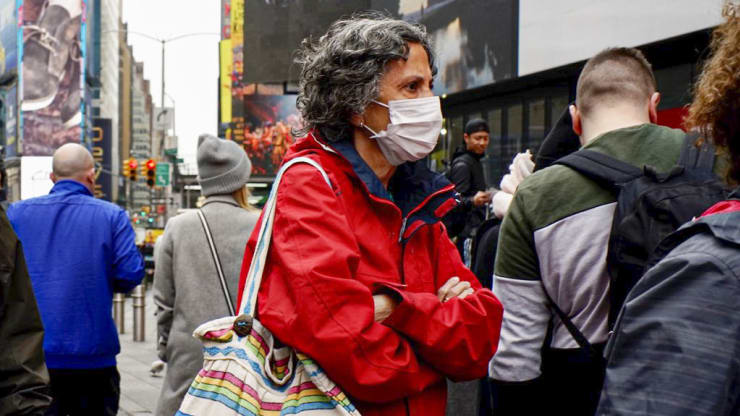Litigation Is a Wrong Response to China over COVID-19

It is really time for everyone to re-frame our thinking and mindset that we live in a globalized world where the problems are globalized and we are actually one community with no borders. We need to come together and fight the challenges as a whole.
The COVID-19 pandemic has certainly changed our lives in 2020. We are dragged into a world that is full of uncertainties and possibly with more bad news to come. The first case of human-infected COVID-19 was found in Wuhan, China. Some politicians started to call the virus the “Chinese virus”.
Although the World Health Organization has explained that the virus originates from nature, rather than a country, and recent research has shown that the COVID-19 may be dormant around the world and activated under appropriate environmental conditions, it does not make people feel better, as nature cannot be held legally accountable. Some individuals in the U.S. believe that the Chinese authorities should be held responsible for causing the global pandemic.
Cases against China
Since the outbreak, at least 16 lawsuits have been filed against the Chinese government and the Communist Party of China (CPC) by individuals and businesses seeking indemnities for death, injuries, and health and wealth loss. These 16 cases are:
- Alters et al. v. People’s Republic of China et al., No. 1:20-cv-21108-UU (S.D. Fla. Mar. 12, 2020)
- Buzz Photos v. People’s Republic of China, No. 3:20-cv-656 (N.D. Tex. Mar. 17, 2020)
- Bella Vista LLC et al. v. People’s Republic of China et al., No. 2:20-cv-00574 (D. Nev. Mar. 23 2020)
- Bourque CPA s and Advisors, Inc. et al v. People’s Republic of China, No. 8:2020-cv-00597 (C.D. Cal. Mar 25, 2020)
- Aharon v. Chinese Communist Party, No. 9:20-cv-80604 (S.D. Fla. Apr. 7, 2020)
- Cardiff Prestige Property, Inc. v. People’s Republic of China, 8:20-cv-683 (C.D. Cal. Apr. 8, 2020)
- Azalea Woods of Ouachita et al. v. People’s Republic of China, No. 3:20-cv-00457 (W.D. La. Apr.13, 2020)
- Smith v. People’s Republic of China, No. 20-cv-01958 (E.D. Pa. Apr. 20, 2020)
- Missouri v. People’s Republic of China, No. 1:20-cv-00099 (E.D. Mo, Apr. 21, 2020)
- Edwards v. People’s Republic of China, No. 2:20-cv-01393 (E.D. La, Apr. 23, 2020
- Stirling v. People’s Republic of China, No. 3:20-cv-00713 (D. Ore, Apr. 30, 2020)
- Benitez-White v. People’s Republic of China, No. 20-cv-01562 (S.D. Tex. May 3, 2020)
- Edwards v. People’s Republic of China, No. 20-cv-01393 (E.D. La. May 8, 2020)
- Greco v. People’s Republic of China, No. 5:20-cv-02235 (E.D. Pa, May 11, 2020)
- Mississippi v. People’s Republic of China, No. 1:20-cv-00168 (S.D. Miss, May 12, 2020)
- Patella v. People’s Republic of China, No. 20-cv-00433 (M.D.N.C. May 15, 2020)
Most of these cases are based on claims for wrongful death, personal injury, gross negligence, fraud and reckless indifference for failure to contain the virus, strict liability, and public nuisance against Chinese government entities and ministries for failing to take appropriate actions to stem the spread of the coronavirus or unjust enrichment based on allegations the coronavirus originated from the Wuhan Biosafety Level 4 lab. The Aharon case also alleges that China has been stockpiling personal protective equipment during the COVID-19 crisis.
Claims not tenable
However, I don’t think these claims are tenable.
First of all, the origin of the COVID-19 has yet to be determined. Even if the origin of the virus is determined in the future, there is no law or precedent that requires the country of origin of the virus to bear the epidemic loss of other countries.
Scientists have found more evidences about the origin of the coronavirus, which could overthrow the earlier argument that the virus was from China. According to the latest finding by Dr. Tom Jefferson, senior associate tutor at the Centre for Evidence-Based Medicine (CEBM), Oxford University, the virus may have existed across the world and emerged when environmental conditions were right for it to thrive – rather than starting in China.
Spanish virologists had found traces of the disease in samples of waste water collected in March 2019, nine months before the coronavirus disease was seen in China.
Italian scientists have also found evidence of coronavirus in sewage samples in Milan and Turin, in mid-December 2019, many weeks before the first case was detected, while experts have found traces in Brazil in November.
More evidences are expected to be found in coming months as scientists have a deeper study on the coronavirus. So, the lawsuits against China over the origin of the virus is frivolous and groundless.
Second, there is no evidence to support the allegation that the Chinese government hid the epidemic or did nothing; neither that China has committed an internationally wrongful act against any country. In fact, the Chinese government notified the World Health Organization about the information of the virus on December 31, 2019 and has continuously provided information about the virus and updates on the outbreak to the global society, including state authorities of other countries and international organizations, since January 3. I think it is another matter how these authorities had dealt with the information professionally.
We should use the same standard to view how the Chinese Central Government and local governments had handled the information flow within China, and how the United States has used the information since January 3 to take effective prevention measures at the appropriate time. Essentially, it is a global public health crisis. As the first country that had to deal with the crisis, China has shown the world useful and valuable control and prevention measures. Countries that copied China’s experiences, such as Thailand, have controlled the pandemic very well.
Third, it is very unlikely that the US courts would support such claims, because foreign governments enjoy immunity from suit in US courts under the Foreign Sovereign Immunities Act of 1976. The statute codifies long-standing principles of US and international law that sovereign governments may not be sued in courts of other countries. The lawsuits claim to fall within statutory exceptions to immunity for tortious or commercial acts in the United States. But these arguments would not prevail because there is no evidence that China committed wrongful acts in the United States or that coronavirus arose from China’s commercial activities in the United States.
There are members of Congress who have drafted legislation to strip China of its immunity from suit in US courts. Even if Congress were to strip China of its immunity, there are issues regarding the recognition and enforcement of that judgment. The Chinese government could refuse to pay any award.
The argument that the CPC does not enjoy immunity as a sovereign power would probably fail as well because the Communist Party is generally viewed as the State authority, and there was a ruling by a federal judge in Florida holding that the Communist Party of Cuba was an agency or instrument of the Cuban government.

Consequences to the global society and the US
If these claims were to succeed in the US courts, China may well retaliate by allowing lawsuits against the US government or its officials in China. This is not what the global society would like to see. All nations respect the principle of sovereign immunity, not as a favor to other countries, but because they expect other countries to respect and protect the immunity of themselves and their officials. Allowing the lawsuit in the US courts could potentially cause severe chaos in the global society, and no countries would really want to see that happening or reveal more uncertainties in the current fragile world judicial system.
Within the US, these lawsuits may serve more as political distractions rather than legal actions, especially in an election year. Foreign policy towards China is always a hot topic in elections, particularly Presidential elections. President Trump is faced with multiple factors that compromise his reelection chances, particularly an economy threatened by the coronavirus resurgence. Conventional wisdom is that, faced with a threatening political situation, Trump will continue to make China the scapegoat for his electability problems. Focusing on the so-called problems caused by China and supporting or proposing strong and aggressive actions towards China can, on the one hand, cover the mistakes the authorities have made during the pandemic, and, on the other hand, manipulate people’s emotions to get votes by creating common enemies and targets.
More to understand
Using law to protect citizens’ rights and interests is like a lifestyle in the US, and has earned the US the label of a “litigious society”. Except for suing the Chinese government, there have also been at least 47 cases (up to July 2) filed against US state and federal executive orders and government actions in response to the COVID-19, and one case against the World Health Organization asserting claims of negligence for the WHO’s alleged failure in containing the COVID-19 virus and in failing to timely declare the crisis a public health emergency.
It is easy to find someone to blame when things go wrong. It is not easy to commit some compassion for the world and try to feel that we are all suffering from it. It is really time for everyone to re-frame our thinking and mindset that we live in a globalized world where the problems are globalized and we are actually one community with no boarders. We need to come together and fight the challenges as a whole.
Dr. Zhu Shaoming is the Founder and President of Foundation for Law and International Affairs. She is also Postdoctoral Researcher of School of Public Policy and Management at Tsinghua University.
 Facebook
Facebook
 Twitter
Twitter
 Linkedin
Linkedin
 Google +
Google +




